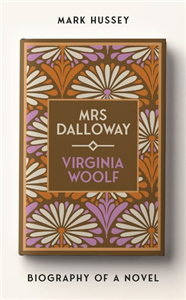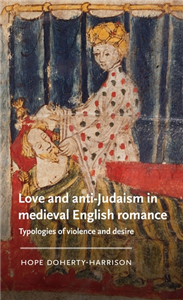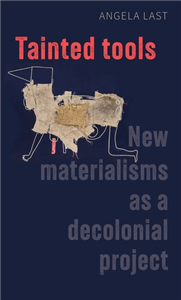Your Search Results
-
Promoted ContentHumanities & Social SciencesJune 2021
Na Fianna Éireann and the Irish Revolution, 1909–23
by Marnie Hay
-
Promoted ContentHumanities & Social SciencesJanuary 2023
Democracy and dissent in the Irish Free State
by Jason Knirck
-
 Trusted Partner
Humanities & Social SciencesOctober 2021
Trusted Partner
Humanities & Social SciencesOctober 2021Ireland and the European Union
Economic, political and social crises
by Michael Holmes, Kathryn Simpson, Dimitris Papadimitriou, Kathryn Simpson, Paul Tobin
This book examines how Ireland's relationship with the EU was affected by a succession of crises in both the Republic of Ireland and Northern Ireland. The financial crisis, the Brexit crisis and the migration crisis were not of equal significance on the island of Ireland. The financial crisis was a huge issue for the Republic but not Northern Ireland, Brexit had a major impact in both polities, the migration and populism issues were less controversial, while foreign policy challenges had a minimal impact. The book provides a summary of the main features of each of the crises to be considered, from both the EU and the Irish perspective. Ireland and the European Union is the first volume of its kind to provide a comprehensive analysis on British-Irish relations in the context of Brexit. It assesses the Withdrawal Agreement and Protocol on Ireland/Northern Ireland, the devolution settlement and the 1998 Agreement, as well as the European dimension to Northern Ireland's peace process. The contributors explore a number of policy areas that are central to the understanding of each of the crises and the impact of each for Ireland. Chapters examine issues such as security, migration and taxation as well as protest politics, political parties, the media, public opinion and the economic impact of each of these crises on Ireland's relationship with the EU.
-
 Trusted Partner
Humanities & Social SciencesOctober 2021
Trusted Partner
Humanities & Social SciencesOctober 2021Ireland and the European Union
by Michael Holmes, Kathryn Simpson
-
 Trusted Partner
Humanities & Social SciencesNovember 2024
Trusted Partner
Humanities & Social SciencesNovember 2024Culture is bad for you
by Orian Brook, Dave O'Brien, Mark Taylor
-
 Trusted Partner
Biography & True StoriesMay 2025
Trusted Partner
Biography & True StoriesMay 2025Mrs Dalloway
Biography of a novel
by Mark Hussey
A compelling biography of one of the most celebrated novels in the English language. The fourth and best-known of Virginia Woolf's novels, Mrs Dalloway is a modernist masterpiece that has remained popular since its publication in 1925. Its dual narratives follow a day in the life of wealthy housewife Clarissa Dalloway and shell-shocked war veteran Septimus Warren Smith, capturing their inner worlds with a vividness that has rarely been equalled. Mrs Dalloway: Biography of a novel offers new readers a lively introduction to this enduring classic, while providing Woolf lovers with a wealth of information about the novel's writing, publication and reception. It follows Woolf's process from the first stirrings in her diary through her struggles to create what was quickly recognised as a major advance in prose fiction. It then traces the novel's remarkable legacy to the present day. Woolf wrote in her diary that she wanted her novel 'to give life & death, sanity & insanity. to criticise the social system, & to show it at work, at its most intense.' Mrs Dalloway: Biography of a novel reveals how she achieved this ambition, creating a book that will be read by generations to come.
-
 Trusted Partner
Literature & Literary StudiesSeptember 2025
Trusted Partner
Literature & Literary StudiesSeptember 2025Love and anti-Judaism in medieval English romance
Typologies of violence and desire
by Hope Doherty-Harrison
Love and anti-Judaism is a new examination of medieval romance for the questions it poses of the most significant events in Christian history. Providing new readings of Sir Gawain and the Green Knight, Sir Orfeo, Sir Gowther and Sir Amadace, the book argues that romance explores depictions of love-and the sacrifices it may necessitate-in the Hebrew Bible, especially where they do not easily fit into interpretations asserting that this history must prefigure Christ and the crucifixion. An examination of anti-Judaism as a discourse of violence and desire that could be turned inwardly to expose the irresolution in Christianity, this book will provoke new investigations into the religious crises of medieval romance.
-
 Trusted Partner
Humanities & Social SciencesAugust 2002
Trusted Partner
Humanities & Social SciencesAugust 2002The rise of the Nazis
by Conan Fischer, Mark Greengrass
How and why did the Nazis seize power in Germany? Nearly seventy years on, the question remains heated and important discoveries continue to challenge long standing assumptions. Beginmning with an overview of the historical context within which Nazism grew, looking at the foreign relations, politics and society of Weimar and in particular at the role of the elites in the rise of Nazism. The book questions the anatomy of Nazism itself: What lent Nazi ideology its coherence and credibility? What distinguished the Nazi's programme from their competitors' and how did they project it so effectively? How was Hitler able to put together and fund an organisation so quickly and effectively that it could launch a sustained assault on Weimar? Who supported the Nazis and what were their motives? Where, precisely, does Nazism belong in the history of Europe?. Since the publication of the first edition, important new works have appeared and this new scholarship has been incorporated into the text. ;
-
 Trusted Partner
Literature & Literary StudiesJune 2026
Trusted Partner
Literature & Literary StudiesJune 2026Tainted tools
New materialisms as a decolonial project
by Angela Last
Tainted Tools makes a provocative intervention into the fraught intersection between new materialist and decolonial approaches. Despite a common project of challenging European philosophical and social categories and hierarchies, the discourses are considered incompatible. Most prominently, new materialisms have been accused of harbouring a White vision of the human while disregarding the racist resonances of the 'nonhuman'. The book traces this conflict to an earlier meeting point of new materialist and decolonial projects, which came about through the experimental combination of Marx and Nietzsche. Used to fight fascism, Stalinism and colonialism, this politically contentious fusion gradually became depoliticised, leading to unaddressed tensions today. While the book does not argue for a revival of these early 'new materialisms', it brings their strategies into dialogue with today's new materialisms and decolonial approaches to develop greater theoretical solidarity in times of crisis.
-
 Trusted Partner
August 2021
Trusted Partner
August 2021Die Erben der Animox 1. Die Beute des Fuchses
by Aimée Carter, Peter Kaempfe, Die Erben der Animox, Animox
Der Kampf um die Welt der Animox geht weiter! Aimée Carter hat mit ihrem Fantasy-Abenteuer rund um die Animox einen Bestseller gelandet. Jetzt wird das super erfolgreiche Fantasy-Abenteuer in einer neuen Buch-Reihe fortgesetzt. Ein Jahr nach der finalen Schlacht der ersten Animox-Bände ist Simon Thorn 13 Jahre alt und leidet noch immer unter den Erinnerungen an den Kampf. Aus Angst, jemanden zu verletzen, schreckt er davor zurück, seine Fähigkeiten einzusetzen. Doch dann braucht ein Mädchen aus Europa dringend seine Hilfe: Ihre Schwester wurde von einer Rebellengruppe entführt. Und sie bleibt nicht die einzige … Hochspannung und packende Wendungen garantiert! Ein Kinderbuch für alle Mädchen und Jungen ab 10 Jahren.
-
 Trusted Partner
February 2020
Trusted Partner
February 2020Die wilden Waldhelden. Helfer gegen Heimweh
by Andrea Schütze, Cathlen Gawlich, Die wilden Waldhelden
Der kleine Diego ist gar nicht gerne im Waldkindergarten. Er möchte einfach nur nach Hause. Aber die 4 WWH haben eine fantastische Idee, wie sie ihm die Zeit im Wald schmackhaft machen können. Sie befüllen für Diego einen "Waldkalender" - für jede halbe Stunde, die er durchhält, bekommt er ein kleines waldiges Geschenk. Wie schnell da die Zeit vergeht!
-
 Trusted Partner
January 2013
Trusted Partner
January 2013Die Tribute von Panem 3. Flammender Zorn
by Suzanne Collins, Maria Koschny, Die Tribute von Panem
Der dritte Band der Bestseller-Trilogie Entgegen aller Erwartungen hat Katniss die Hungerspiele zum zweiten Mal überlebt. Schwer verletzt wurde sie von den Rebellen befreit und in Distrikt 13 gebracht. Aber noch immer ist sie nicht in Sicherheit. Das Kapitol will Rache, die Auseinandersetzungen werden immer blutiger. Als Katniss herausfindet, dass auch die Rebellen versuchen, sie für ihre Ziele zu missbrauchen, muss sie einsehen, dass sie alle nur Figuren in einem perfiden Spiel sind. Kann sie diesen Kampf überhaupt gewinnen? Das grandiose Finale der Panem-Trilogie – bombastisch, gefeiert und vielfach ausgezeichnet. Endkampf Hungerspiele – die Rebellen schlagen zurück - Die dystopische Erfolgsreihe geht weiter: Auf letzter Mission mit Katniss und Peeta gegen das Kapitol. Bestseller-Autorin Suzanne Collins nimmt uns mit auf eine finale Reise nach Panem. - Ein fesselnder Kampf über Mut, Zusammenhalt und die Frage: Was ist das Richtige? - International bekannt durch die gleichnamige Filmadaption mit Oscar Gewinnerin Jennifer Lawrence. - Das große Finale der Hunger Games Trilogie: Die Tribute von Panem: Flammender Zorn als gekürzte Lesung.
-
 Trusted Partner
January 2013
Trusted Partner
January 2013Die Tribute von Panem 2. Gefährliche Liebe
by Suzanne Collins, Maria Koschny, Die Tribute von Panem
Die Liebe kommt ins Spiel: Hunger Games geht in die zweite Runde. Sechs Monate sind vergangenen, seit Katniss und Peeta die Hungerspiele gewonnen haben. Sie sind längst in ihren Distrikt zurückgekehrt und hoffen auf eine friedliche Zukunft. Vor ihnen steht nun die Tour der Sieger – und noch eine schwere Aufgabe: Gerüchte machen die Runde, dass sich Widerstand gegen das Kapitol regt. Die Spur führt zu Katniss und Peeta, in deren gemeinsamen Erfolg viele den Beginn einer Revolution sehen. Präsident Snow sieht seine Macht von Katniss untergraben und droht jeden umzubringen, den sie liebt, sollten ihn Katniss und Peeta nicht davon überzeugen können, ein tatsächlich glückliches Liebespaar zu sein. Eine scheinbar einfache Aufgabe, wären da nicht Katniss´ Gefühle für Gale. Der Druck, der des Kapitols auf das Volk und der auf Katniss, nimmt immer weiter zu. - Die packende Fortsetzung von Suzanne Collins Mega-Erfolg. - Für Fans gut erzählter Fantasy, dystopischer Abenteuer und starker Protagonistinnen. - Verfilmt als Tribute von Panem – Catching Fire mit Jennifer Lawrence als Katniss Everdeen und Donald Sutherland als Snow. - Wenn du Das Lied von Vogel und Schlange liebst und wissen willst, wie es in Panem weitergeht. - Gekürzte Ausgabe
-
 Trusted Partner
Trusted Partner
-
 Trusted Partner
January 2016
Trusted Partner
January 2016Die Olchis und die große Mutprobe und eine weitere Geschichte
by Erhard Dietl, Robert Missler, Kay Poppe, Kay Poppe, Die Olchis, Ohrwürmchen, Erhard Dietl
Die Olchis und die große Mutprobe Die Olchi-Kinder besuchen ihre Verwandten an der Nordsee. Und hier erwartet sie Schreckliches, denn ihr Cousin will die beiden nur dann in die Bande der schwarzen Muschel aufnehmen, wenn sie drei Mutproben bestehen: von einem hohen Felsen springen, frische Pfirsiche essen und sich mit Parfümseife waschen. Doch die mutigsten Olchis der Welt schrecken vor nichts zurück! Die Olchis und der Schmuddel-Hund Die Olchikinder finden ihre Haustiere heute furzlangweilig. Feuerstuhl schläft, die Ratten dösen und die Fliegen fallen tot auf den Boden. Wie krötig, dass gerade jetzt ein Hund auf der Müllhalde auftaucht! Der kann sogar Kunststücke und liebt es, im Dreck zu wühlen! Ungekürzte Lesungen von Robert Missler mit Musik und Geräuschen.
-
 Trusted Partner
January 2017
Trusted Partner
January 2017Die Olchis bekommen ein Haustier und eine weitere Geschichte
by Erhard Dietl, Robert Missler, Kay Poppe, Die Olchis, Ohrwürmchen, Erhard Dietl
Die Olchis bekommen ein Haustier Schleimige Stinkesocke! Ist das ein Drachenei? Die Olchi-Kinder finden auf ihrer Müllkippe ein großes, grünes Ei, aus dem kurz darauf ein grünes Wesen schlüpft: ein Flugdrache. Man beschließt, ihn zu behalten. Als er krank wird, tun die Olchis alles, damit er wieder auf die Füße kommt. Die Olchis im Zoo "Schlabber-Kröten-Furz! Ihr habt ja wohl gar keine Ahnung", raunzt der Olchi-Opa. Denn die Olchi-Kinder wissen nicht einmal, was ein Elefant ist. Das kann auch ein Olchi nicht durchgehen lassen und deshalb machen Olchi-Oma und Olchi-Opa mit den Olchi-Kindern einen Ausflug in den Zoo. Und das kann ja nur im Chaos enden. Großer Hörspaß als ungekürzte Lesung mit Musik und Geräuschen.
-
 Trusted Partner
Political partiesNovember 2014
Trusted Partner
Political partiesNovember 2014The Conservative Party and the extreme right 1945–1975
by Mark Pitchford
This book, newly available in paperback, reveals the Conservative Party's relationship with the extreme right between 1945 and 1975. For the first time, this book shows how the Conservative Party, realising that its well known pre-Second World War connections with the extreme right were now embarrassing, used its bureaucracy to implement a policy of investigating extreme right groups and taking action to minimise their chances of success. The book focuses on the Conservative Party's investigation of right-wing groups, and shows how its perception of their nature determined the party bureaucracy's response. The book draws a comparison between the Conservative Party machine's negative attitude towards the extreme right and its support for progressive groups. It concludes that the Conservative Party acted as a persistent block to the external extreme right in a number of ways, and that the Party bureaucracy persistently denied the extreme right within the party assistance access to funds and representation within party organisations. It reaches a climax with the formulation of a 'plan' threatening its own candidate if he failed to remove the extreme right from the Conservative Monday Club.
-
 Trusted Partner
March 2021
Trusted Partner
March 2021Die Olchis. Willkommen in Schmuddelfing
by Erhard Dietl, John Chambers, Toby Genkel, Robin Brosch, Die Olchis, WunderWerk, Verlag Friedrich Oetinger
Ohren auf, Nase zu: Das krötige Hörbuch zum Olchi-Kinofilm. Als die Olchis mit ihrem Drachen Feuerstuhl auf dem Müllberg von Schmuddelfing einziehen, fühlen sie sich sofort muffelwohl. Wie herrlich faulig es hier duftet! Und so viel krötiges Essen überall! Nur leider möchte die Frau Bürgermeisterin, dass der Müllberg so schnell wie möglich aus ihrem Städtchen verschwindet. Mit dem Bauunternehmer Hammer schmiedet sie einen gemeinen Plan. Und schon rücken die Bagger an! Ob die Olchis zusammen mit ihren Freunden Max und Lotta ihr neues Zuhause retten können? Von Schmuddelfing ins Kino und weiter ins Kinderzimmer – ungekürzte Lesung von Robin Brosch.
-
 Trusted Partner
September 2016
Trusted Partner
September 2016Die Olchis. Das Adventskalender-Hörbuch
by Erhard Dietl, Barbara Iland-Olschewski, Robert Missler, Benjamin Dittrich, Die Olchis, Frank Gustavus, Erhard Dietl
O du krötige … In Schmuddelfing soll es zu Weihnachten eine lebende Krippe auf dem Marktplatz geben. Klar, dass die Olchi-Kinder unbedingt mitmachen wollen. Doch leider haben sie statt "Krippe" nur "Gerippe" verstanden und rutschen – Muffelfurzteufel! – in gammeligen Fischgräten-Kostümen zusammen mit Olchi-Opa die Schneeberge hinunter zur Stadt. Dort erleben die drei ein olchiges Weihnachtsabenteuer nach dem anderen. Schleime-Schlamm und Käsefuß, was für ein Fest! Der große Olchi-Weihnachtsspaß in 24 Kapiteln. Mit olchigen Witzen und Weihnachtsliedern. Gelesen von Robert Missler
-
 Trusted Partner
Humanities & Social SciencesJanuary 2025
Trusted Partner
Humanities & Social SciencesJanuary 2025The four dimensions of power
Understanding domination, empowerment and democracy
by Mark Haugaard
In this accessible and sophisticated exploration of the nature and workings of social and political power, Haugaard examines the interrelation between domination and empowerment. Building upon the perspectives of Steven Lukes, Michel Foucault, Amy Allen, Hannah Arendt, Anthony Giddens, Pierre Bourdieu and others, he offers a clear theoretical framework, delineating power in four interrelated dimensions. The first and second dimensions of power entail two different types of social conflict. The third dimension concerns tacit knowledge, uses of truth and reification. Drawing upon genealogical theory and accounts of slavery as social death, the fourth dimension of power concerns the power to create social subjects. The book concludes with an original normative pragmatist power-based account of democracy. Offering lucid and entertaining illustrations of complex theoretical perspectives, this book is essential reading for scholars and activists.


























